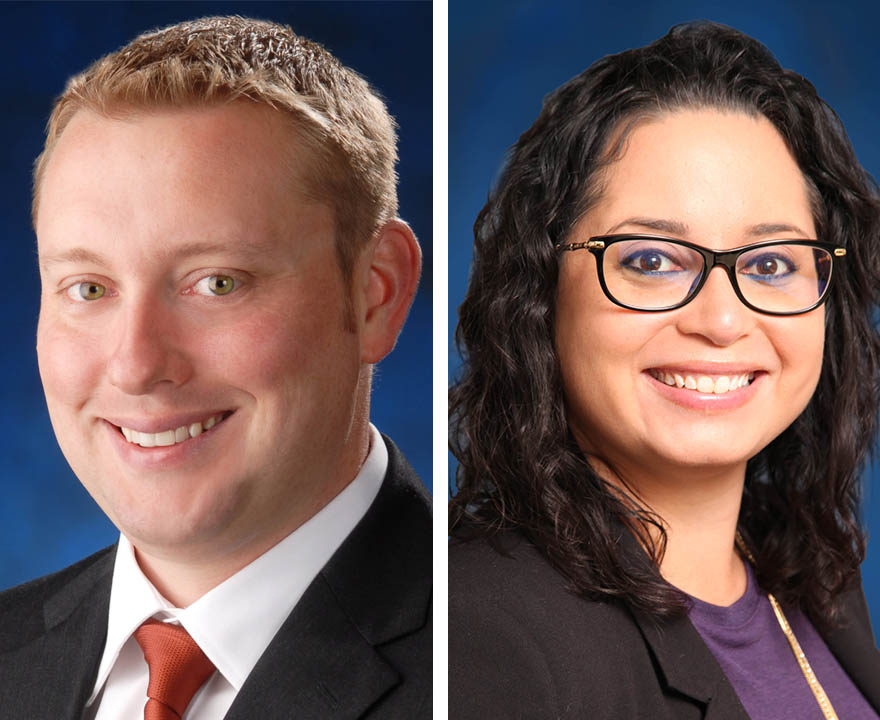Community-centered, equity-focused

Community-centered, equity-focused
- January 27, 2022
- UCI and community partners expand efforts to build local resilience and address COVID-19 inequities
-----
Since the early days of the COVID-19 pandemic, public health researchers from the University of California, Irvine have partnered with local Orange County community-based health equity leaders to articulate and address inequities in COVID-19 response and allocation of public health resources. Over the next two years, researchers will work with community partners to understand the critical role that community health workers have played in COVID-19 equity efforts and to identify areas for structural improvements to address health inequities. The goal is that this work will inform community-based efforts and policymakers on best practices for responding to future public health crises.
A nearly $1.2 million grant from the National Institutes on Minority Health and Health Disparities provides the necessary funding needed to establish the new initiative, coined the Community Activation to Transform Local Systems (CATALYST). Among the project’s goals are to create a roadmap for community-centered response and recovery with a special focus on improving access to COVID-19 information, testing and vaccination for low-income communities and communities of color who have been disproportionately affected by the ongoing pandemic.
“Community health workers or promotores have been key figures in local COVID-19 response efforts and these individuals were critical to building public health interventions towards health equity,” said Alana M.W. LeBrón, (pictured at right) co-principal investigator on the study and an assistant professor in the UCI Program in Public Health’s Department of Health, Society, & Behavior and in the UCI School of Social Sciences’ Department of Chicano/Latino Studies. “Community health workers provide a unique, valuable perspective for understanding social, ethical and behavioral dimensions of COVID responses.”
This project builds upon an earlier partnership the researchers created in May 2020: the Orange County Health Equity COVID-19 Community-Academic Partnership, which was created to help guide local COVID-19 equity response and recovery initiatives. The partnership brought together community-based health equity leaders and academic partners, UCI being among those partners. Over the past year, the collaboration shifted to urging for equitable vaccine distribution and allocation.
As part of the new study, researchers will conduct interviews and focus groups with community health workers and residents in the areas with the highest social vulnerability. Through these interviews, the team hopes to identify the successes and challenges faced by community health workers and community members in their efforts to access COVID-19 education, training, testing, contact tracing and vaccinations. Findings from the interviews will then be used to inform interviews with community health workers from across California and determine the extent to which Orange County’s community responses are generalizable to diverse populations across the state.
“Advocating for a health equity approach to COVID-19 response requires developing a better understanding of the systemic factors at play,” said John Billimek, (pictured at left) co-investigator and associate professor and vice chair for academic affairs in the UCI School of Medicine’s Department of Family Medicine. “The best–and the only–way to glean this information is by engaging with our community leaders, policy stakeholders and Orange County community members directly.”
Members of the Community-Academic Partnership that are returning to collaborate with UCI on the CATALYST study include the Orange County Asian and Pacific Islander Community Alliance, Latino Health Access and Radiate Consulting.
This project also involves a longstanding community-based organization, Getting Residents Engaged in Empowering Neighborhoods-Madison Park Neighborhood Association (GREEN-MPNA), whose work focuses on organizing to address resident priorities including air pollution and COVID response and recovery and AltaMed Health Services, a regional leader in equitable health care and community responses to the pandemic.
“The work of community health workers is uniquely situated at the intersection of health education, community organizing and advocacy, said Gloria Montiel, PhD, a community engaged researcher with AltaMed and Latino Health Access. “This allows for a multi-layered approach to health equity that addresses not only immediate public health crises but also the underlying inequities that exacerbate their impact on working-class communities of color.”
LeBrón added, “given what we know about COVID-19 as a disease of disparities, it is critical that we promote pandemic response and recovery with a fundamental focus on health equity. We have an incredible capacity for bringing about system-wide change when we engage in meaningful, health equity-focused community partnerships. That goes for current crises like COVID-19 and future public health challenges.”
-----
Would you like to get more involved with the social sciences? Email us at communications@socsci.uci.edu to connect.
Share on:
Related News Items
- Careet RightReimagining public health: A call to confront power structures
- Careet RightPopulation health costs of exclusionary and criminalizing immigration policies
- Careet RightSocial sciences research at risk
- Careet RightUC Irvine receives grant to study lead exposure effects on children's learning, behavior
- Careet RightThe ground beneath their feet


